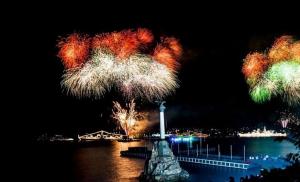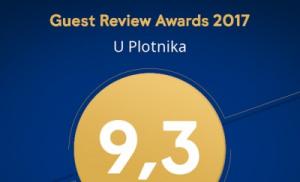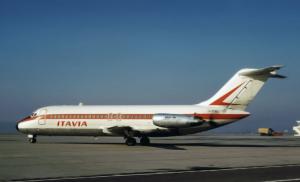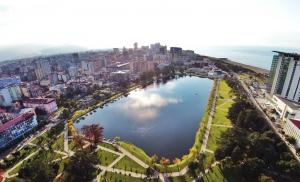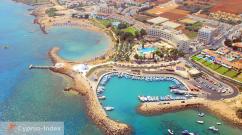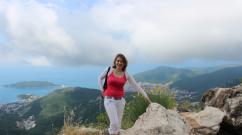The modest charm of the Swiss bourgeoisie in a village for billionaires - previously the traveler was looking for unknown countries, but now he is looking for wifi. The richest Swiss people The richest person in Switzerland
In the annual list of the most affluent residents of the Confederation, published in the economic magazine Bilan (or Bilanz in the German version), little has changed since 2011. Fans of counting money in other people's wallets rushed this morning to magazine kiosks, the shelves of which are decorated with traditional black and gold covers. The golden color was not chosen by chance, because the first December issue of Bilan contains a list of those who were not greatly or not at all affected by the global economic crises, nor national political cataclysms.
But last night the list was announced at a soirèe organized by the magazine's editors at the Intercontinental Hotel in Geneva. This was followed by a discussion on the topic “Is Switzerland still attractive to the rich?” The moderator was the editor-in-chief of Bilan magazine, Stéphane Benoit-Gaudet, and the conversation was attended by Geneva Minister of Finance David Hiler, fiscal lawyer Xavier Oberson, Patrick Delarive, president and founder of the Delarive Group, and Bilan deputy editor-in-chief Miret Zaki.
Having received food for thought, the guests moved on to cocktails, but main theme the conversation remained, of course, with those whose names were included in the LIST.
Let us remind you that our Swiss colleagues who compile the list are guided by two main criteria: the candidate must be Swiss or a resident of Switzerland and have more than 100 million.
The list of rich people includes a variety of people: representatives of old Swiss, French, German and other families who inherited fortunes; large businessmen whose names are associated with world-famous brands; and the owners of the so-called “new” money, that is, those who became rich relatively recently. The absolute palm was retained by the owner of IKEA, Swede Ingvar Kamprad, who lives in the canton of Vaud. His fortune has grown by 3 billion over the past year and is about 39 billion.
But, of course, we were primarily interested in familiar names. Based on Bilan data, we compiled our own mini-list, which has also become traditional.
The first place in it, as in previous years, is firmly occupied by Viktor Vekselberg, a resident of the canton of Zug, whose fortune has increased by 4 billion and is now estimated at 14-15 billion. (IN general list He ranks 4th among the Swiss rich.) The sale of 12.5% of his shares in the Russian-British oil group TNK brought him 6.5 billion francs, significantly more than observers had predicted. “This money will be invested in the development of high technologies, biomedicine, alternative energy sources and infrastructure projects in Russia,” the magazine quotes the 55-year-old oligarch as saying. Being “registered” in Zug, he directs the development of the research center in Skolkovo from here. However, we do not know what Vekselberg answered to the question about his main place of residence asked by the Zug cantonal service when he decided to become the owner of his new apartment overlooking the lake. As you know, actual residence is a prerequisite for foreigners wishing to purchase real estate in Switzerland.
According to the magazine's estimates, Viktor Vekselberg's two main Swiss businesses - 13% in Sulzer and 49% in OC Oerlikon - should be profitable if they brought about a billion francs to their partial owner. He also owns 7% of the Russian aluminum giant Rusal. In addition, through his Renova group, he became the main shareholder of the Intergrated Energy Systems group, the largest private supplier of gas and electricity in Russia.
We have already written that Vekselberg moved to Zug after the residents of Zurich voted to abolish the flat tax for foreigners. I wonder where Viktor Feliksovich will direct his steps if the entire Confederation speaks out against “privileges for the rich” at the referendum planned for 2015?
Gennady Timchenko also retained his second position on the list, whose fortune increased by 2 billion. and now, according to Bilan, amounts to 7-8 billion. But you can probably believe it, because it was to this publication that a 60-year-old entrepreneur with a Finnish citizen’s passport gave his first interview in Switzerland three years ago. In general, having been in the shadows for a long time, Gennady Nikolaevich has recently shown a certain media activity: his name is increasingly appearing in the press, and the recent issue of the Russian Forbes magazine was published with his photograph on the cover.
Timchenko's main business in Switzerland is the trading company Gunvor, specializing in oil trading. It was founded by Timchenko together with his partner, the Swede Torbjorn Tornqvist, both billionaires participate in it equally - 46% each. Despite its Geneva residence, the company's office is located in Rhone Street - Gunvor has already become a world leader and is actively working in 35 countries. Gennady Timchenko himself obviously loves variety - his shareholding in various industries (coal mining, construction, petrochemicals, hotel business, aviation, insurance and food) has expanded, the Swiss publication reports. He also owns a 23% stake in Novatek, the main independent gas producer in Russia, which is actively strengthening its presence in the market: in particular, the company signed a 10-year, 6 billion contract with the German group EnBW.
The Kulibayev family, the second daughter of Kazakh President Nursultan Nazarbayev Dinara and her husband Timur, fell behind Timchenko, but retained its third place in the list of the richest. Dinara remains one of the most inconspicuous of the wealthy ladies living in Switzerland - if it were not for the villa she purchased in Asnieres for 72 million in 2009, we might not have known about her presence in Switzerland. Her husband, who heads the KazEnergia group, does not formally live in Switzerland. However, after Bern opened an investigation into the laundering of 600 million francs by the pair in 2010, their names increasingly come to our attention in the Swiss media. Just last Monday, former Kazakh minister and president of the country's largest private bank, Mukhtar Ablyazov, hiding in at the moment from English justice, admitted in an interview with the Le Temps newspaper that it was he who made public the data exposing Timur Kulibayev.
Fourth place on the list went to the Louis-Dreyfus family, whose fortune increased by 2,250 million. This is the first time this name has appeared on our pages, although the heiress to her late husband’s empire, 50-year-old Margarita, speaks excellent Russian. True, in a recent Swiss television program dedicated to her, she spoke very well in English.
This blonde and mother of three boys apparently has a strong character - having entered into inheritance rights, she fired the general director of the family business, Jacques Weir, and several other senior employees appointed by her husband shortly before his death, the magazine reports. According to Swiss journalists, it was not easy for Margarita to take control of the huge empire of her husband, who made a fortune in trading raw materials. Robert Louis-Dreyfus personally registered the Akira family foundation in the Netherlands, and the trading and intermediary company Louis-Dreyfus Commodities, a leader in the market of agricultural raw materials throughout the world, in France. But, apparently, Margarita is coping.
Despite moving one place lower on the Bilan list, 61-year-old Vasily Anisimov, whose fortune, made in construction and real estate and estimated at between 3 and 4 billion, is doing well. This year, his wife Catherine (43) and son Nikolai (13) received the title of “bourgeois of Küsnacht,” the Zurich equivalent of the Geneva quarter of Cologny. The businessman himself, originally from Kazakhstan, is in no hurry to receive a Swiss passport. Rumors concerning him come from both his homeland and Moscow. He is said to be interested in the Moscow Kristall distillery, which produces several types of popular vodkas, from Pure Kristall to Putinka. His daughters Angelina and Anna, who previously shone on the pages of American glamor magazines, now live quietly in New York, where Anisimov's son-in-law Ryan Friedman is rapidly developing his real estate empire called Corigin Real Estate. But the original company of “our” entrepreneur, registered in Zug Coalco, is subject to liquidation by his decision.
The man whom we put in sixth place on the list of the richest Swiss people, formally, of course, cannot be considered “ours”. However, his connections with Russia are much more active than most of the above and below listed citizens. We are talking about the owner of the family pharmaceutical company Ferring, Frederik Paulsen, who is also the Honorary Consul of Russia in the canton of Vaud. We recently published a lengthy interview with this extraordinary person, so we won’t repeat it. Let us only note that even the compilers of the “rich list,” who clearly do not have much love for the people on it, are rather favorable towards Paulsen and call him “one of the last adventurers on this planet.”
One can be happy for Mr. Paulsen: the search for adventure, which has already taken him to seven of the eight existing poles, does not interfere with the prosperity of his business - according to Bilan, his fortune has grown over the past year by 1250 million and ranges from 2 to 3 billion francs. In addition to his main enterprise, Ferring, located in Saint-Pré near Lausanne, this “modest chemist,” as the Swiss call him, runs a number of companies involved in medical research.
We don’t know how accurate the estimates of Mr. Paulsen’s capital are, but our Swiss colleagues were definitely wrong about one thing - he has not three, but four children, his youngest son Sasha is three and a half years old.
Number 7 on our list is 45-year-old Yuri Shefler, who specializes in alcoholic beverages and luxury products and is called by the Swiss “the uncrowned vodka king.” According to Bilan, he has 2-3 billion francs. It is interesting that in the Russian Forbes list of “Russian Richest Businessmen” for 2011, he took the last, two-hundredth place (with a capital of $500 million), and in a similar list for 2012, Shifler does not appear at all.
Bilan also hints at the litigation that the Russian government has waged against Shifler's company Spirits International, part of the SPI group, since 2002 - it concerns the rights to the vodka brands Stolichnaya and Moskovskaya. However, the magazine does not comment in any way on the information we found on the Oligarchy website. According to this source, Schiffler lost those rights last summer. “The Court of Appeal in The Hague left the exclusive right to the Stolichnaya and Moskovskaya brands to Russia. As RAPSI reports with reference to a message from the law firm Hoyng Monegier, which represented the interests of Russian Federation, the complaint by the Dutch company Spirits International was rejected."
We found the same information on the Pravo.ru website, so it is probably true. But the businessman living in Geneva does not despair and finds time to relax on his 133.9 m long yacht called Serena.
On the same level as Yuri Shefler is another resident of Geneva - Vyacheslav Cantor. His financial condition has not changed in any way over the past year (2-3 billion francs), but the list of awards has been supplemented by the French Legion of Honor for his contribution to the fight for the rights of minorities, against racism and anti-Semitism. Indeed, a 59-year-old graduate of the Moscow Aviation Institute and an Honorary Doctor of Tel Aviv University, Kantor is actively involved in social work, holding a number of positions: President of the European Jewish Congress, co-chairman of the European Council for Tolerance and Reconciliation, president of the International Luxembourg Forum to Prevent Nuclear Catastrophe, president of the World Holocaust Forum Foundation, chairman of the European Jewish Fund.
This does not prevent him from running a successful business: Kantor controls 84% of Acron and 2.7% of Uralkali, the two largest fertilizer producers in the world.
His passion for horses and art is well known in Geneva - lovers of the latter still recall the exhibition of a small part of his private collection, which was held at the Palais des Nations in 2009.
Tenth place on our list is occupied by another lady - Gulnara Karimova, Ambassador of Uzbekistan to the UN European Office. As we recently reported, the eldest daughter of the President of Uzbekistan is now involved in an investigation by the Swiss Prosecutor's Office, which has frozen hundreds of millions of francs in accounts belonging to two citizens of Uzbekistan suspected of money laundering. Both Uzbeks worked for Coca-Cola Uzbekistan, owned by Gulnara Karimova. But Bilan does not write anything about this. It only says that both she and her sister Lola own real estate in Geneva, and Gulnara is engaged not only in business diplomacy, but also makes a career as a singer and fashion and jewelry designer (we have already written about her achievements in the latter area). According to a Swiss magazine, she has just launched a perfume called Mystérieuse, created together with the famous French perfumer Bertrand Duchafour.
Gulnara's fortune is estimated at between 900 million and a billion; it did not change in 2012.
Finally, the last of the list is the former president of the Yukos-Moscow company and the former owner of 4.3% of the shares of the destroyed oil company Vasily Shakhnovsky. You can read about how his relationship with YUKOS ended in the book “Prison and Freedom,” published this year, written by Mikhail Khodorkovsky in co-authorship with journalist Natalya Gevorkyan. Vasily Shakhnovsky, described in the book as an exemplary family man and teetotaler, lives in the canton of Vaud, taking advantage of the benefits of flat taxation - while he can.
He is included in the “List” for the second time: last year his fortune was estimated at half a billion, this year - at 400 million. But he does not lose heart. According to Bilan, Shakhnovsky lives for his own pleasure, indulging in his passion - golf. And trying to stay as far away from the legal troubles of their former partners as possible.
One of Europe's richest villages has refused to accept any asylum seekers and instead voted to pay a fine of almost $300,000.
Fear of possible sexual attacks on women and children, as well as disruption to a peaceful way of life, forced the super-rich high mountain resort Oberwil-Lili in Switzerland voted against accepting only 10 migrants during the referendum. The picturesque village's 2,200 residents, 300 of whom are millionaires, have decided to flex their financial muscles to reject the central government's quota.
One of the richest villages in Europe, Oberwil-Lili refuses to accept any asylum seekers. The Swiss government has ordered it to accept 10 migrants as part of a promise to take in a total of 50,000 people, at least 3,000 of whom come from Syria.

But 2,200 wealthy residents of Oberville-Lily, 300 of whom are millionaires, held a referendum and voted against the government's quota, opting instead to pay a fine of nearly $300,000.

Fears of possible sexual attacks on women and children, as well as disruption to peaceful ways of life, led the ultra-rich high-altitude resort of Oberwil-Lily in Switzerland to say no to the government's plans during a May 1 referendum.

Surrounded by lush green pastures and with stunning views of the snow-capped Alps, the twin villages of Oberwil and Lily belong on a chocolate box.

Residents, who include a huge number of millionaires per capita, say they want to protect their tranquil way of life and don't want any new arrivals to spoil the quiet environment.

Some of Oberville-Lili's wealthiest residents said they were willing to personally help pay the fine imposed by the Swiss government - about $150 per person. They will have to pay the same fine next year if they do not meet the quota.

But this decision polarized local society, dividing opinions almost equally. While most residents supported the decision, others were “confused” by it. This mother of two says she was embarrassed by 'racism'.

The village is lined with Alpine-style chalets and modern glass-enclosed houses, making it one of the most attractive - and expensive - places to live in Switzerland. The fine will be paid from a fund of $7 million, which is generated from local taxes.

The roads here are spotlessly clean, the gardens are immaculate and, despite the distance of 16 kilometers largest city countries of Zurich, there is almost no traffic. Residents, many of whom are retirees, say they don't want their pensions to be ruined by migrants.

That is why the village will have to pay a fine to the Swiss government.

Oberwil-Lili mayor Andreas Glarner, 54, said the reason for the vote was fear.

He added: “Yes, refugees from Syria should be helped, and they would be better served in camps closer to their homes. The money paid may be used to help them, but if we provide them with housing here, we will be sending the wrong message. Others will also risk their lives crossing the ocean and paying smugglers.”

52% of voters were against accepting refugees. The mayor says Oberville-Lili is a quiet village, not equipped to accommodate 10 migrants. “It was a small victory for those of us who don’t want refugees, because Oberville-Lily is not a place for them.”

The population of Switzerland is 8 million people.

The number of asylum requests has been decreasing recently.

Switzerland accepts 50 thousand asylum seekers. All of them are divided between 26 cantons, each locality a quota of refugees was allocated depending on the population size.
#10 – Magdalena Martullo-Blocker ($3.8 billion)

Magdalena Martullo-Blocker is currently the CEO of Ems-Chemie, a Swiss company involved in the production of chemicals and polymer products. In 2014, Ems-Chemie's annual sales were approximately 1.972 million Swiss francs ($2 billion). In 2015, Martullo-Blocker entered politics and was elected national councilor (photo-gazettereview.com).
#9 – Ivan Glasenberg ($3.8 billion)

Ivan Glasenberg only became a Swiss citizen in 2011, but he is still considered one of the richest citizens. In 1984 he joined Glencore, an influential mining company headquartered in Switzerland. By 2002, he was appointed its chief executive officer. His net income has been steadily declining over time as the economic climate has changed, but he still has a pretty fat wallet.
#8 – Rachel Blocker ($3.9 billion)

Currently, Rachel and Magdalena Blocker, her sister, have a large share in the Ems-Chemie company. However, Rachel doesn't actually work there. She runs her father's other company, Robinvest. Robinvest is an investment company, and although it is not as successful as Ems-Chemie, it still serves as an excellent additional source of income.
#7 – Dona Bertarelli ($3.9 billion)

Dona Bertarelli is not like most other entrepreneurs. Her passion is sailing, which she is quite good at. In 2010, Bertarelli and her team won the Bol d'Or Mirabaud, becoming the first woman to win the race. Most of her wealth comes from inheritance. Serono, her family's business, was sold for more than $9 billion to Merck KGaA in 2007.
#6 – Thomas Schmidheiny ($5.1 billion)

Thomas Schmidheiny owns vineyards all over the world, but calls Klosters his home. In 1984, he inherited his father's Holcim company, which is still one of the world's leading cement companies. Schmidheiny stepped down in 2003 but still owns approximately 12% of the highly successful international company.
#5 – Hansjörg Wyss ($5.9 billion)

Hansjörg Wyss graduated from the Swiss Federal Institute of Technology Zurich with a Master of Science degree. Later he went to study at Harvard University and received an MBA degree. Wyss worked in a variety of different jobs in the textile and iron and steel industries after graduating, and eventually met with one of the founders of Synthes, a Swiss medical device manufacturer. By 1997, Wyss founded Syntheses USA. The company was highly successful, and he stepped down as its chairman when Johnson & Johnson acquired the company for $21.3 billion in 2012.
#4 – Isolde and Will Liebherr($6.1 billion)

Isolde and Will Liebherr are brother and sister. Together they run the equipment manufacturing company Liebherr Group. The couple has continued the business their father started, and they say they intend to pass the company on to their children in the future. Today the Liebherr Group employs more than 40,000 people.
#3 – Gianluigi Aponte($8.2 billion)

The businessman began his career as a ferry captain, and while working, he met his wife Rafaela. In 1970 they founded the Mediterranean Shipping Company. The business started with one ship that transported goods between Europe and Africa. Today, Mediterranean Shipping Company (MSC) has become almost a global superpower in terms of container shipping. In the late 1980s, MSC branched out to become MSC Cruise, a successful cruise line. In 2014, Aponte stepped down as CEO of MSC, handing over control of the company to his son Diego.
#2 – Marguerite Louis-Dreyfus ($8.2 billion)

Born in Leningrad in the USSR in the 60s. In 1988, she met and married Robert Louis-Dreyfus, an influential French businessman who was chairman of the Louis Dreyfus Group, an energy company agriculture and the shipbuilding industry. In 2009, Robert died after a long battle with leukemia, resulting in Margarita inheriting the business.
#1 – Ernesto Bertarelli– ($8.6 billion)

Ernesto Bertarelli studied business abroad, receiving a degree from Babson College and an MBA from Harvard Business School. In 1996, he took over Serono, his family's pharmaceutical company, significantly improving the business. Bertarelli is an avid philanthropist.
